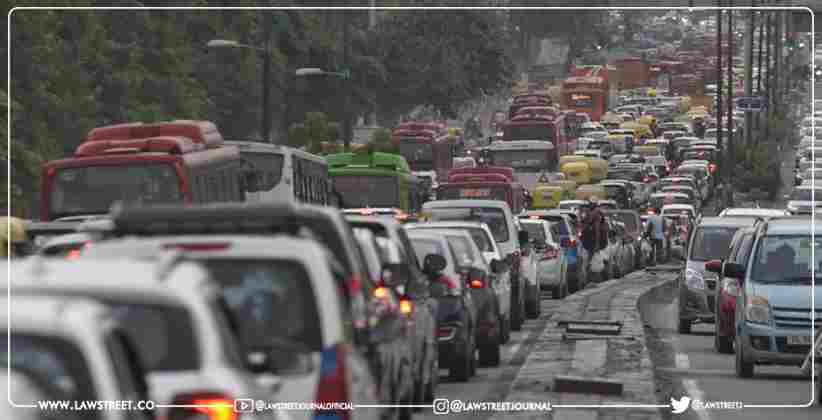The Supreme Court said on Friday that it is not in a position to micromanage authorities and monitor the traffic, road, and parking situation of such a vast country while dismissing a contempt petition in a plea seeking, among other things, directions regarding illegal parking of vehicles in the Najafgarh area.
The petitioner had complained to the High Court about overloaded trucks, tractors, trolleys, and dumpers being allowed to enter Najafgarh without having their registration numbers checked. In his plea, he also brought up the subject of unauthorised vehicle parking. The petition was dismissed by the High Court, which stated that no overloaded trucks, tractors, or other vehicles would be granted admission, and that vehicles parked unlawfully would be removed from the affected area. The subject was brought to the Supreme Court in an appeal. It asked the petitioner to approach the Commissioner of Police by way of a representation, which would be dealt with in accordance with the law, in an order dated 31.01.2020.
Nothing in the contempt petition survives, according to Justices L. Nageswara Rao and B.R. Gavai, because the responsible authorities have accepted the petitioner's representation and taken his ideas into account.
"This contempt petition was filed for violation of an order passed by this Court directing the authorities to give an opportunity to the petitioner to voice his grievances. An affidavit has been filed on behalf of the respondents dated 09.03.2022 that the petitioner has been heard, and his suggestions have been taken into account to take action against the persons who are violating traffic and parking their vehicles in no parking zone."
While dismissing the contempt case, Justice Rao noted that the Supreme Court would be unable to investigate the specifics of the traffic situation in Najafgarh.
"You have been a good samaritan and achieved whatever you wanted. It is not that we can sit here and take care of the traffic situation in Najafgarh."
As the petitioner further complained about the traffic situation, Justice Rao remarked
"We have been very indulgent to you. The Supreme Court is not meant for taking care of parking. We saw to it that your representation is heard."
The petitioner urged the Court to consider the fact that the work had only been completed on paper and that no action had been taken in reality.
Justice Rao noted-
"Sitting in the Supreme Court it is impossible for us to see what the ground reality is in respect of traffic, in respect of roads, in respect of parking in such a vast country. Since your grievances have been taken note of, they have taken some action we cannot continue with this contempt. It would be difficult for us to monitor. You are in the Supreme Court, not a lower court where they will know what the local situation is."
The petitioner was reminded by Justice Rao that the limited objective of contempt was to ensure that the petitioner's representation to the relevant authorities was taken into account. Nothing survives the contempt petition if the same is done, he stated. In the event of a grievance, the petitioner was instructed to contact the appropriate authorities.
"Now, you have to approach the authorities.... This contempt was only for the purpose that your representation was not considered and you were not heard. So, there is nothing that remains in contempt."








